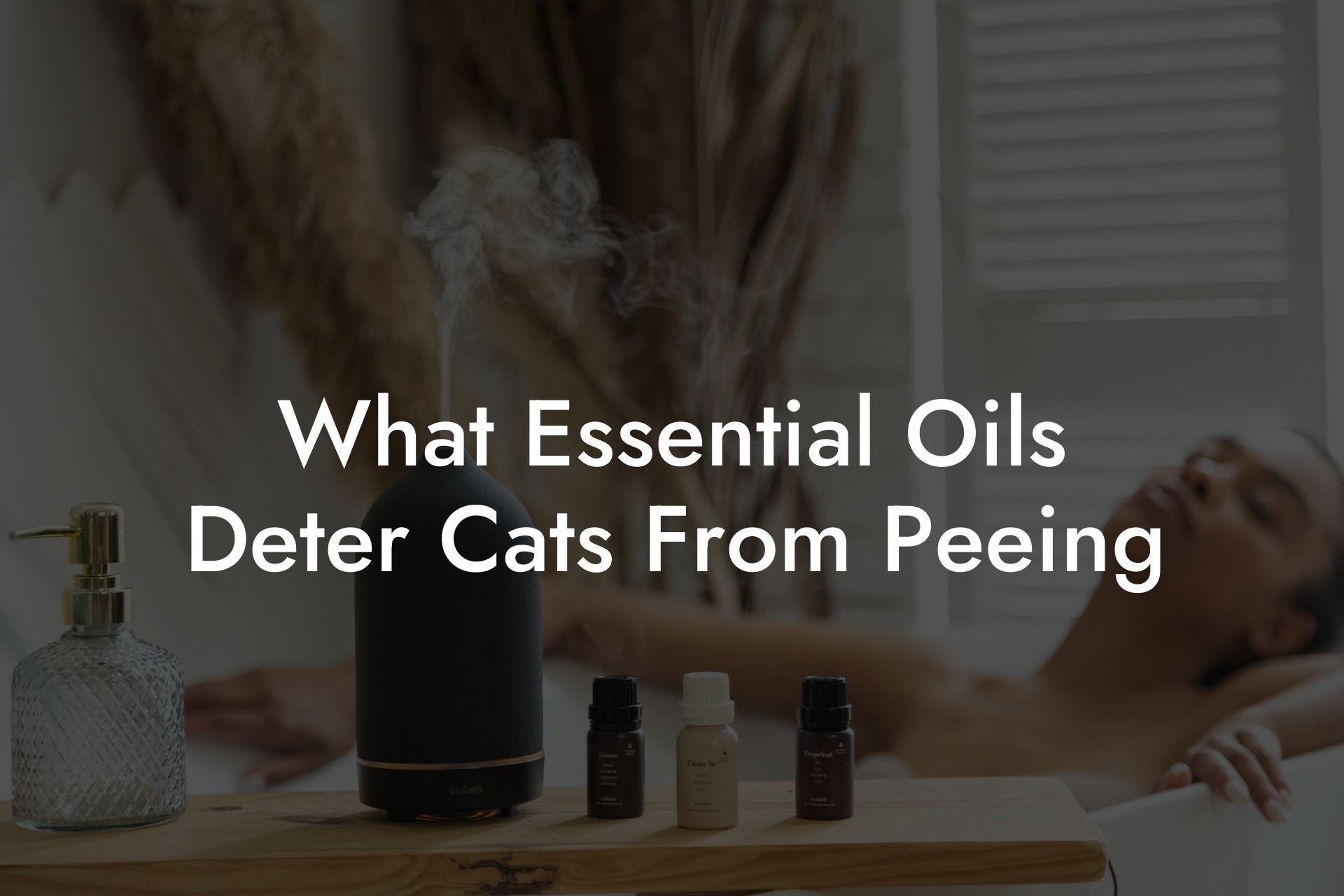Are you tired of your cat, or the neighborhood cats, using your beautiful garden or your immaculately kept home as a personal toilet? We understand the frustration and the need to find a viable, non-toxic solution to deter them. Enter essential oils – the natural wonders that can come to your rescue. In this blog post, we will explore which essential oils have cat-repelling properties and how to use them effectively.
Table of Contents
Understanding Cat Behavior
Before we delve into the essential oils that deter cats from peeing, it’s important to understand why they exhibit this behavior. Cats are territorial animals, and they mark their territory by depositing pheromones through urine. Peeing helps them communicate with other cats and let them know this area is claimed. Stress, anxiety, or medical issues can also lead to inappropriate urination.
Why Essential Oils?
Essential oils can be an effective and natural solution to deter cats from peeing by masking or eliminating the smells they associate with their territory. However, it is important to remember that some essential oils can be toxic to cats when ingested, inhaled, or absorbed through the skin. Therefore, you must choose oils that are safe for your cat and use them in a controlled manner.
Safe Essential Oils for Cats
- Lavender
- Eucalyptus
- Lemongrass
Eucalyptus Oil
Eucalyptus oil is a natural antiseptic, and its strong, sharp scent is a natural repellent to cats. Make a solution by mixing a few drops of eucalyptus oil with water in a spray bottle. Spritz the mixture in the areas where your cat has been peeing. However, do not spray directly on plants, as it can be harmful to them.
Lavender Oil
Lavender oil, with its calming and relaxing fragrance, is also an effective cat repellent. Cats dislike the smell of lavender, making it an ideal choice for deterring them from peeing in your garden or during house-soiling incidents. Create a solution of water and a few drops of lavender oil, and spray it around the areas you want to protect.
Lemongrass Oil
Lemongrass oil has a citrusy scent that cats find repulsive. Moreover, it is safe for them and can be used to deter cats from peeing in unwanted areas. Dilute the lemongrass oil with water and spray it around the perimeter of your garden or in parts of your home where your cat pees.
Using Essential Oils Safely
While these essential oils are safe for cats, it is essential to use them correctly. Follow these guidelines to ensure proper use:
- Dilute the essential oils with water, following the recommendations of a certified aromatherapist.
- Do not use oils directly on your cat or allow them to ingest them.
- Avoid applying oils to any surfaces cats may lick or chew on.
- Do not use diffusers in closed spaces where your cat cannot leave if the scent is too strong.
- Consult your veterinarian before introducing essential oils into your cat’s environment, especially if they have a history of respiratory issues.
What Essential Oils Deter Cats From Peeing Example:
Imagine you have a beautiful flower bed that your neighbor’s cat has been using as a litter box. To protect your plants without causing harm to the cat, you can use lavender essential oil as a deterrent. Prepare a solution with 3-5 drops of lavender essential oil and 2 cups of water in a spray bottle. Shake the bottle well and mist the perimeter of your flower bed and along the walkway every few days. This gentle yet effective method will keep the cat at bay without causing any harm to it, your flowers, or the environment.
We hope you now have a better understanding of which essential oils can help deter cats from peeing in unwanted areas and how to use them safely. Remember to always consult with a veterinarian or a certified aromatherapist before using essential oils in your cat’s environment. If you found this article helpful, we encourage you to share it with fellow cat lovers and explore our other guides on essential oils and aromacology. Don’t forget to check out Oshu Oils’ range of artisan essential earth oils to bring balance and wellbeing to your life.





















